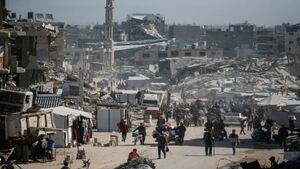To discuss the ongoing challenges and threats to human rights on the continent, Channel Africa spoke Mary Pais Da Silva, a renowned human rights defender, Attorney, and Co-founder of the African Initiative for Women Human Rights Defenders.
Human rights and their significance for Africa
According to Da Silva, human rights form the foundation for achieving equality, justice, and sustainable development. "Human rights defenders, especially women, play a crucial role in advocating for these rights, particularly for marginalized groups like women and girls," she explained. She highlighted that in the African context, human rights are closely tied to the principle of Ubuntu, which emphasises community and interconnectedness. "It calls for causing no harm to others, which should be the basis for respecting human rights."
Challenges impacting human rights on the continent
The ongoing conflicts, political instability, and corruption across Africa remain major barriers to human rights. Countries such as Sudan, the Democratic Republic of Congo, and Ethiopia have experienced widespread human rights violations, including displacement, sexual violence, and loss of dignity due to armed conflict and political unrest. "In many African countries, judicial systems are not independent, leaving victims without access to justice," said Da Silva.
She also pointed to the widespread issue of gender-based violence in Africa, where women and girls face domestic abuse, sexual violence, and harmful cultural practices like female genital mutilation (FGM) and child marriage. Additionally, Da Silva noted the limited political participation of women in many countries, despite some progress in recent years.
Steps towards recognising human rights in Africa
Da Silva stressed the importance of strengthening legal frameworks across African nations. "We need to ratify and implement regional and international human rights instruments, enforce national laws, and protect human rights defenders who face attacks for their work," she stated. She also called for more awareness around human rights issues, emphasising that many African countries still view human rights as a Western concept.
"Governments, civil society organisations, and international bodies must collaborate to address human rights violations," Da Silva continued. "We must ensure that communities are involved in solutions, especially when traditional and cultural practices are barriers to progress."
Progress on human rights in Africa
Despite the challenges, there have been notable advancements in certain countries. The Gambia, for example, has made FGM a criminal offence, while South Africa has made strides in gender equality. In Botswana, same-sex relations have been decriminalised, and Côte d'Ivoire has passed laws to protect human rights defenders from attacks.
While much remains to be done, Da Silva remains hopeful, urging stronger collaboration between governments, civil society, and businesses to protect the rights of all Africans. "If these stakeholders fulfil their roles, we can ensure that human rights are respected and upheld across the continent," she concluded.
--ChannelAfrica--













